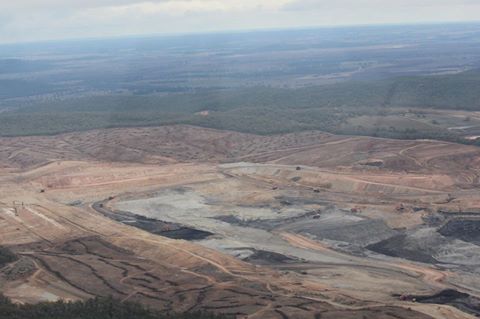 A citizen science group based in coal-afflicted Maules Creek, NSW, claims the Department of Planning and Environment has failed to validate low frequency noise modelling that it uses in planning decisions, resulting in harm to rural communities near coal mines.
A citizen science group based in coal-afflicted Maules Creek, NSW, claims the Department of Planning and Environment has failed to validate low frequency noise modelling that it uses in planning decisions, resulting in harm to rural communities near coal mines.
The Leard Forest Research Node (LFRN) has just completed a review of proposed changes to the NSW Industrial Noise Policy and is critical of the way the Department relies on modelling and formulas instead of real-world field monitoring.
LFRN Draft Submission Industrial Noise Guidelines PDF
“Coal washeries, crushing plants and coal loaders are notorious producers of low frequency noise which can travel up to 20km and cause severe sleep disturbance for up to a 12km radius around an open cut coal mine,” said one of the researchers, Ms Anna Christie.
“Instead of prioritising the health of rural communities, the Government has plunged some rural communities into a night-time purgatory of sleep disturbance with rumbling, whirring, grinding, bangs, gear changes and toots audible at 12 km or more”, said Ms Christie.
“The Department’s standard response, that mines are under very strict conditions of approval, could not be further from the truth. In the case of some mines, they only have to report 24 x 15 minute periods per month. In other words despite operating 24/7 they only have to report on the noise levels less than 1% of the time, which is hardly strict. Using Maules Creek as an example, the mine knows up to a day in advance when acoustic consultants are doing their monthly rounds, enabling them to keep noise levels low whilst monitoring is taking place.”
One of the key objections to NSW Industrial Noise Policy is the secrecy surrounding low frequency noise. It is impossible for the community to obtain official low frequency noise data because the NSW Government has not deemed it part of the reporting requirements of mines.
“It’s another example of lax regulation which does not enable timely and honest investigation of noise complaints,” said the researcher.
“To make matters worse, the Department of Planning and Environment has been ignoring the NSW Industrial Noise Policy since 2010, preferring a formula designed for wind farms and gas power stations called the ‘simplified Broner method’”, said Ms Christie. “The NSW Minerals Council is lobbying hard for the simplified Broner method to become the official formula for low frequency noise analysis of mines.”
“We have tested the method in the field, doing 100 attended logs compared to the mine’s 24 per month, and covering a much larger area,” she said. “It’s clear that the Department has never validated some basic assumptions about the way noise travels in rural areas like Wollar, Bulga, Boggabri, Maules Creek and Gloucester.”
The citizen scientists say unofficial adoption of the Broner method by the Dept of Planning must be stopped immediately and all instances where it has applied the method be reconsidered.
“It undermines evidence-based decision making and is causing uncertainty and chaos in mine regulation,” said Ms Christie.
“As a world leader in coal mining and export, the State of New South Wales has a duty of care to the people of NSW to develop policy that is suited for the conditions of this State, and not to use models which were developed for other industries, in other countries, or in non-rural settings,” she added.
“As a citizen science group obviously we will face claims that we are not acoustic experts, and thus not qualified to comment,” said Ms Christie.
“However, Australia is an educated country, and our group includes community members with higher degrees in disciplines like science and law, as well as advisers who are expert in acoustics.”
“Furthermore we are open to any investigations of our methodology and findings, which is more than you get from the Department of Planning and certainly not the coal mining industry.”